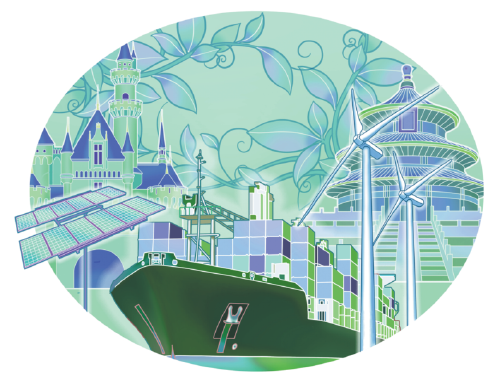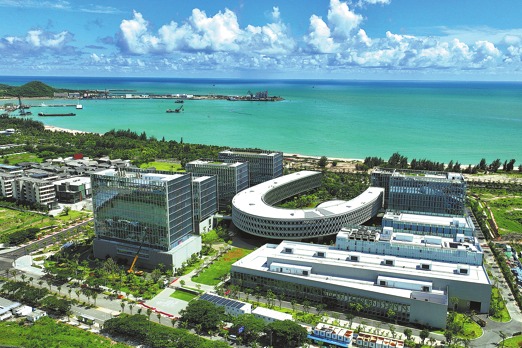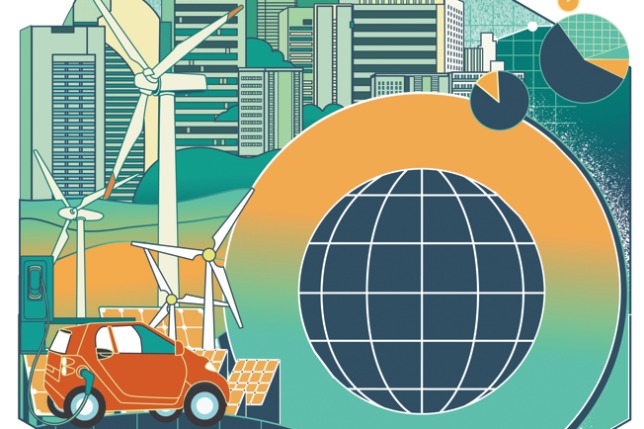Building an important bridge


The EU and China are committed to a relationship based on mutual respect, wanting to promote dialogue and fostering the important role they can play as global players in an equitable world order
This year marked the start of much-needed reconnection and re-engagement to expand the business relations between Europe and China. We have seen many Chinese business delegations being eager to travel to the European Union again after China fully reopened its borders following the easing of restrictions that were in place because of the COVID-19 pandemic. This is a significant and promising turning point, and these people-to-people contacts are much needed to plug the gap in trust and communication after three years of limited contact.
As the chairman of the Belgian-Chinese Chamber of Commerce for over 25 years, I have been lucky enough to witness the changing relationship between the EU and China. The channels of communication between the EU and China remain open, but are disrupted from time to time. The announcement of the screening mechanism for foreign direct investment or the EU's countermeasures against Chinese electric vehicles come to mind here. These differences in political and economic decision-making are not only a reflection of each power's leadership and culture, but are often a reflection of a completely different way of looking at the world.
Characterized by many ups and downs, the continuation of diplomatic and economic relations and people-to-people contacts has nonetheless persisted. Especially in today's world with global threats and challenges continuing to emerge, and the dynamics of decoupling, protectionism and unilateralism, we remain crucial mutual partners. At a time when several countries speak about putting up new trade barriers, we should remember that protectionism has not been a solution for social progress and poverty alleviation, on the contrary.
It is therefore in the EU and China's best interest to further strengthen their cooperation to solve common challenges such as global hunger and climate change. Even though the EU considers China both a rival and partner, it remains committed to cooperating with China to ensure continued progress in order to reach the United Nations sustainable development goals and the Paris Agreement targets. The EU and China have both committed to a comprehensive strategic partnership through the EU-China 2020 Strategic Agenda for Cooperation and the 2019 Joint Communication "EU-China — A Strategic Outlook". The EU supported low-carbon urban development in China in 2018, with European cities such as Amsterdam and Bologna providing technical advice to Chinese cities such as Zhuhai and Guilin on solid waste management, wastewater treatment and on how to become resilient cities. EU projects have also helped Chinese small and medium-sized enterprises adopt energy efficient solutions to reduce their environmental impact.
China has also taken active efforts to address climate change by launching major efforts to increase the protection of its wetlands and animal species, and has committed to reaching peak carbon dioxide emissions before 2030 and achieving carbon neutrality before 2060.
Indeed, Chinese and European experts are already communicating on emissions trading systems, long-term low emissions development strategies, greenhouse gas emissions from vehicles and agriculture, climate-smart cities and scientific and technology development. However, experts still see many possibilities for cooperation on climate issues, which should not be ignored and could be further developed. When it comes to eradicating hunger and poverty, EU-China cooperation in research has been conducted in recent years. In 2011, an EU-China Task Force on Food, Agriculture and Biotechnology was created, as well as the Food, Agriculture and Biotechnology Flagship Initiative, to increase joint studies on sustainable agriculture, food security and safety. EU-China collaboration in food, agriculture and biotechnology research has been a win-win investment for both sides. The efficiency and quality of agricultural research in both Europe and China have improved because of this.
It is therefore clear to see that decoupling our economies would have significantly negative implications for both economies and for the world at large.
The continuation of EU-China relations was reconfirmed during the 24th EU-China Summit recently held in Beijing, the first in-person meeting between Chinese and European leaders in four years. The European Union emphasized the need for a more balanced economic relationship, seeing that the trade deficit is almost 400 billion euros ($436.3 billion) according to Eurostat figures, and urged China to ensure a level playing field and improve market access for European companies. Regarding the trade deficit, Beijing points out that this has already decreased by nearly 17 percent in the current year.
Both the EU and China support multilateralism and agree to promote necessary reform of the World Trade Organization. Mentioning China's great efforts in renewable energy expansion and reducing methane emissions, both sides have also recommitted to working together on climate action and global health improvements. The constructive conclusions of the summit show that both the EU and China are still committed to a relationship based on mutual respect, wanting to promote dialogue and fostering the important role that they can both play as global players in an equitable world order.
From Jan 1, 2024, to the end of June 2024, Belgium will assume the presidency of the Council of the EU. This means that the country will take up a leading role in Europe, especially in the relationship between Europe and foreign countries. In that context, the Belgian-Chinese Chamber of Commerce will remain committed to its role as a bridge between Belgium, Europe and China.
The author is chairman of the Belgian-Chinese Chamber of Commerce and senior partner of Dewit Law Office. The author contributed this article to China Watch, a think tank powered by China Daily.
The views do not necessarily reflect those of China Daily.
Contact the editor at editor@chinawatch.cn


































